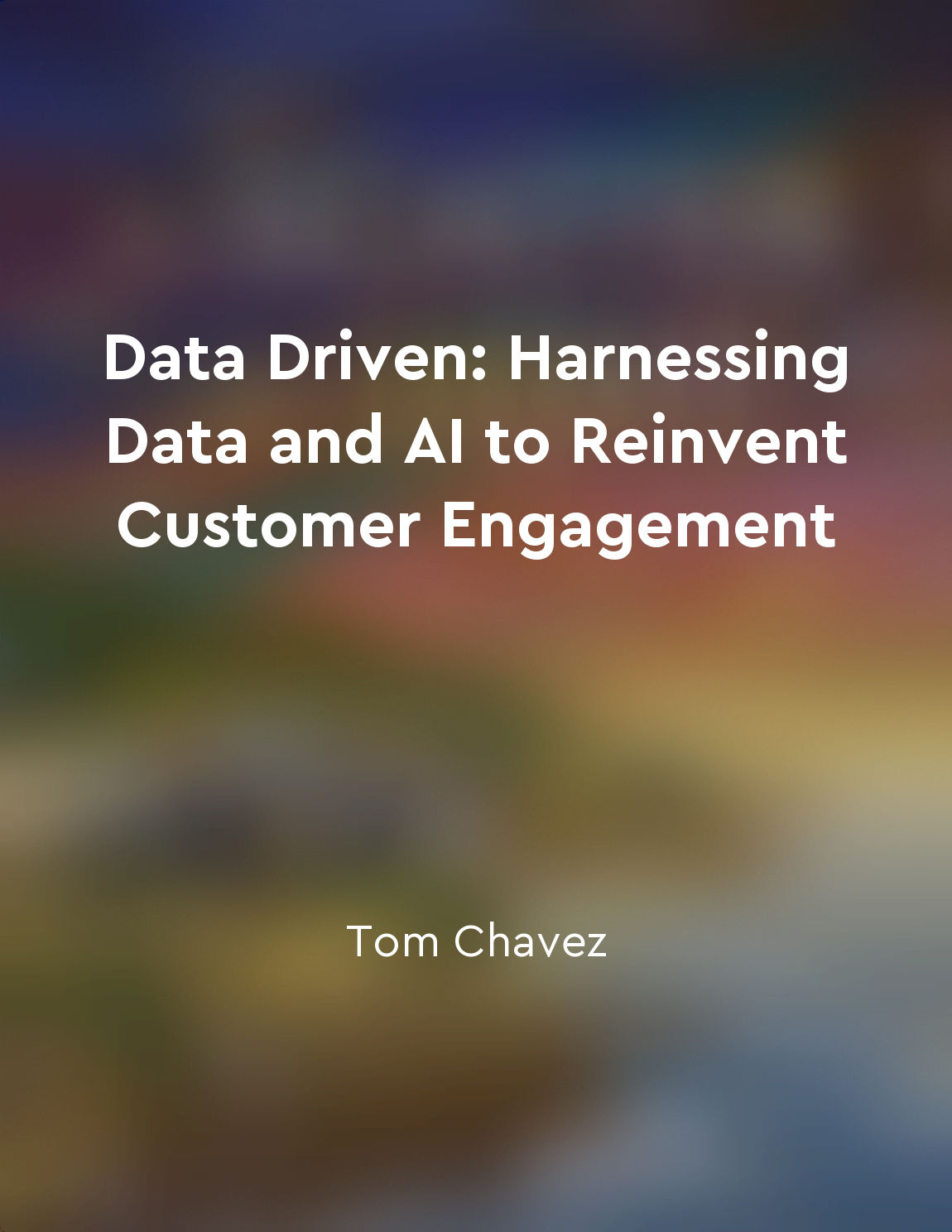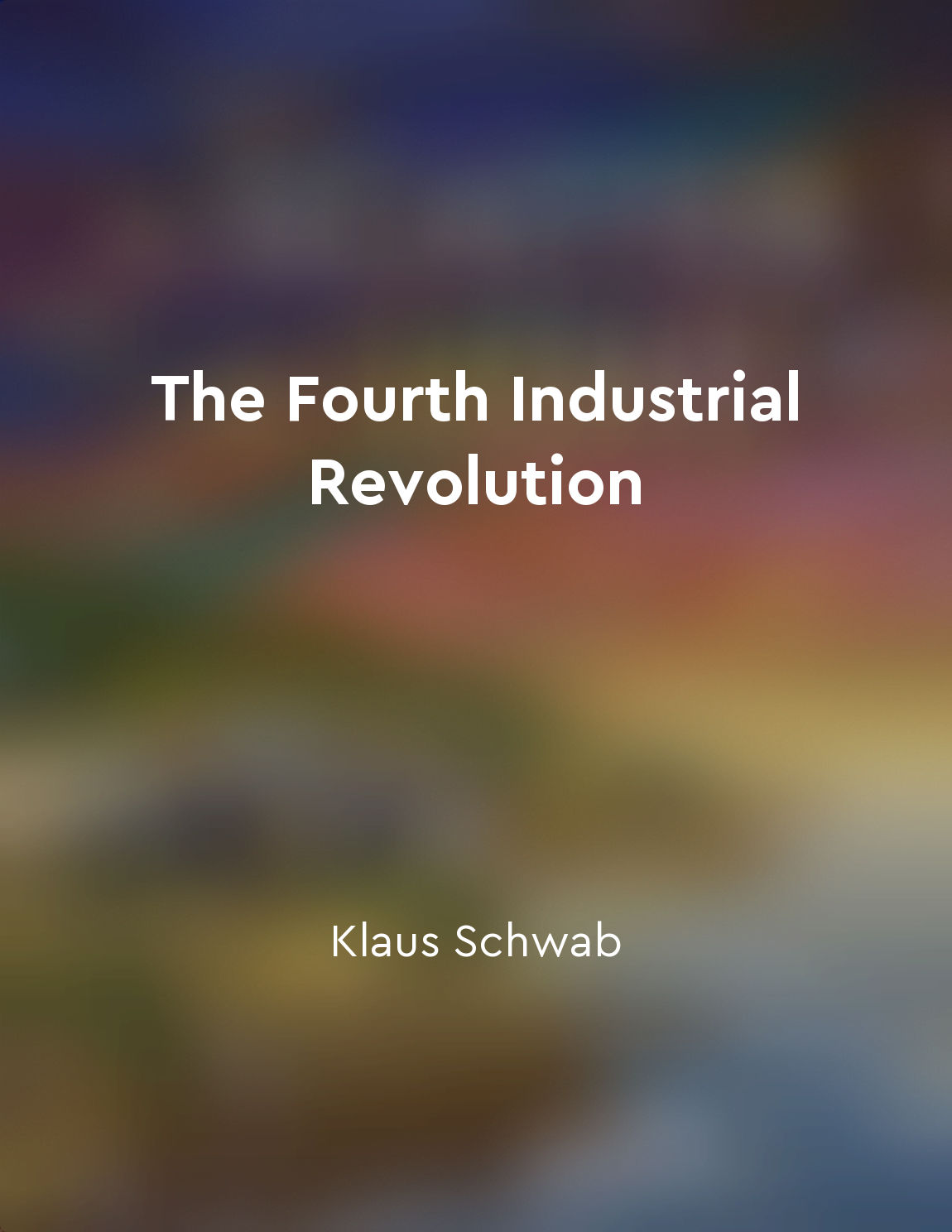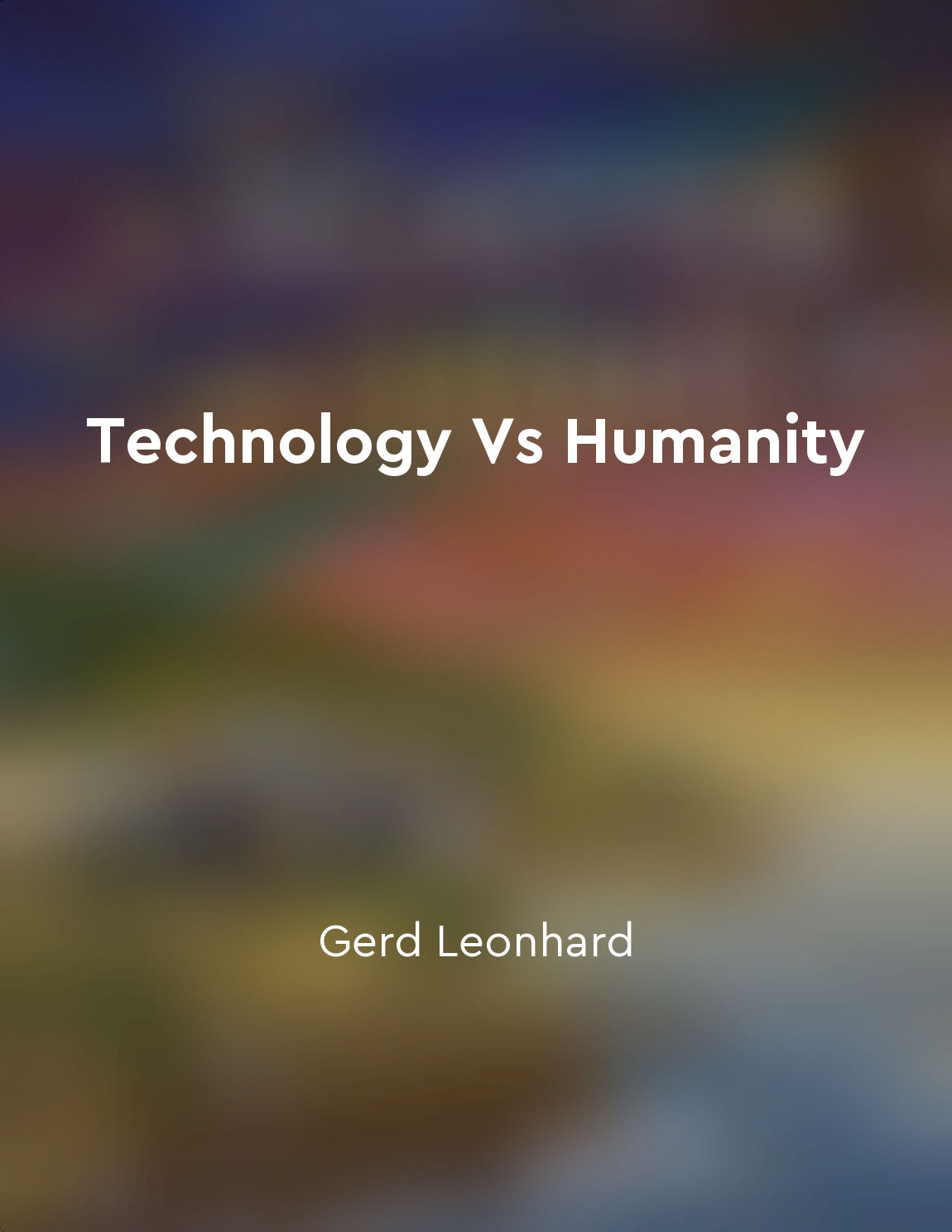Data ownership is a crucial issue from "summary" of Technology Vs Humanity by Gerd Leonhard
Data ownership is a crucial issue because it lies at the heart of the current digital transformation - it is the very essence of who we are in a digital society. For many individuals, the idea of owning our data may seem like a given, almost a natural right, since it is, after all, about us. However, the reality is quite different: most of the data that is generated by our digital interactions is not owned by us but by the companies that collect it. This creates a fundamental power imbalance that is only exacerbated by the increasing amount of data being generated every day. The issue of data ownership becomes even more critical when we consider the implications for our privacy and autonomy. When companies own our data, they have the power to use it in ways that may not always align with our best interests. They can sell it to third parties, use it to target us with ads, or even make decisions about us without our knowledge or consent. This not only erodes our privacy but also undermines our autonomy as individuals in a digital society. Furthermore, the question of data ownership is closely tied to the broader debate around the future of work and the economy. In a world where data is increasingly valuable, those who control it hold significant power. This raises important questions about who benefits from the data economy and who is left behind. If data ownership remains concentrated in the hands of a few powerful companies, it could exacerbate existing inequalities and create new forms of digital divide.- The issue of data ownership is not just a technical or legal matter - it is a deeply philosophical and ethical one. It forces us to confront fundamental questions about the nature of identity, agency, and power in a digital age. Who owns our data? Who should own it? And what are the implications for our society and our humanity as a whole? These are complex questions that require careful consideration and dialogue if we are to navigate the challenges of the digital age with wisdom and foresight.
Similar Posts
The future of work will be uncertain
The world of work is in a state of flux, with traditional career paths giving way to new forms of employment. The days of joini...

Ethics guide human behavior in a complex world
Ethics are the guidelines that shape human behavior in the intricate web of interactions that make up our world. They serve as ...
Embrace failure as a learning opportunity
Failure is not the end of the road, but rather a stepping stone towards growth and progress. It is through failure that we lear...

Programming is a form of literacy that unlocks endless possibilities
Programming is a form of literacy, like reading and writing, that allows us to communicate with machines. It enables us to give...
Cultural shifts and evolving norms
In the near future, society will experience significant changes in cultural values and norms. This transformation will be drive...
Opensource technology
Open-source technology is a term that refers to software and hardware whose design and implementation are publicly accessible. ...

Communication is power
Communication is the foundation upon which power is built. It is through communication that individuals and groups are able to ...

Data and AI are transforming customer engagement
Data and AI are revolutionizing the way businesses engage with their customers. By leveraging the power of data and artificial ...

AI algorithms can perpetuate bias and discrimination
AI algorithms have the potential to perpetuate bias and discrimination. The data used to train these algorithms can be biased, ...

Transparency and accountability are essential in the development and deployment of AI technologies
Transparency and accountability are critical aspects of the development and deployment of AI technologies. As we navigate the F...


